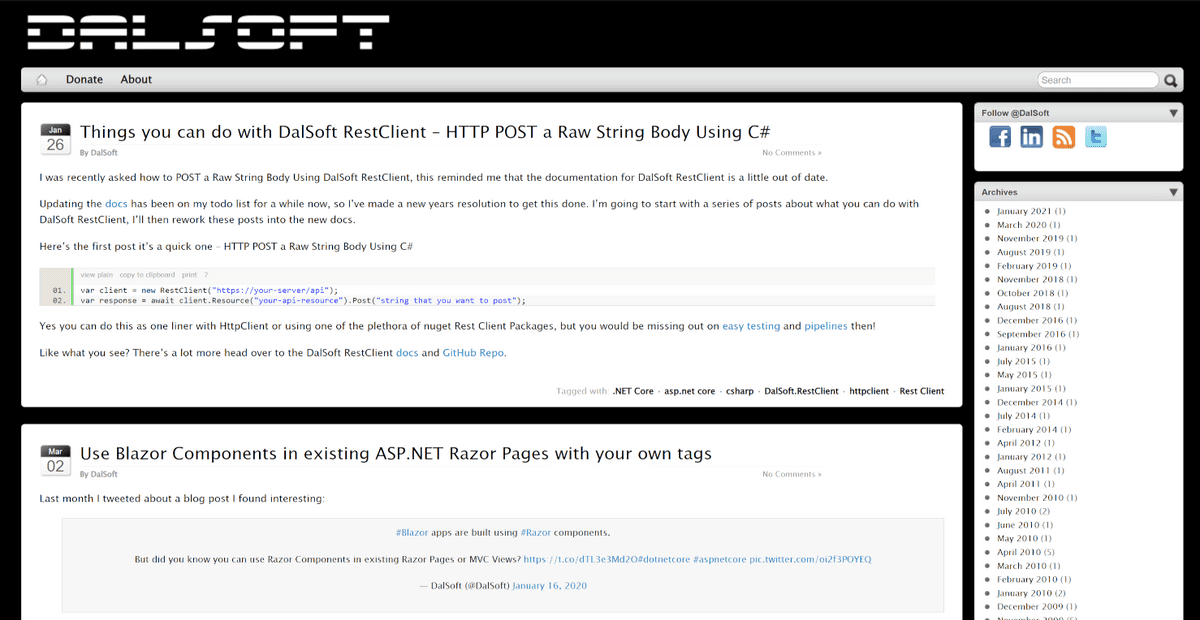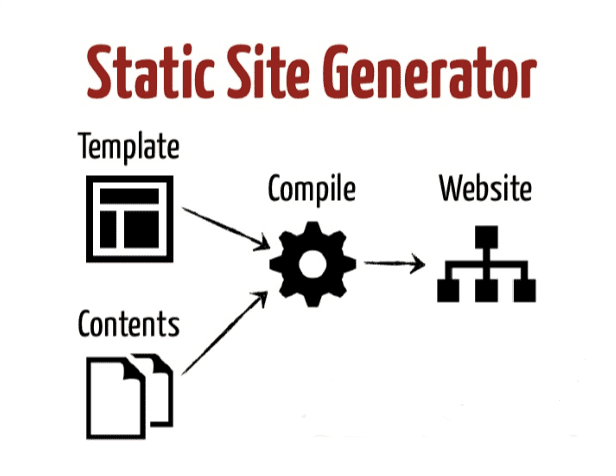After a hiatus from content creation since 2021, we're excited to be back. During the COVID-19 pandemic, we were busier than ever supporting our clients, and creating content took a back seat. Since 2009, our website and blog have been hosted on WordPress. While WordPress was a cornerstone of Web 2.0 back then, the development experience now feels outdated.
This isn't to bash WordPress—it served us well for 15 years. We were even early adopters of running WordPress on an Azure App Service. Even our old WordPress site didn't look particularly dated:
However, by today's standards, creating content was cumbersome, and we couldn't fully leverage our expertise in ASP.NET and React.
Over the past two years, amidst client projects, we’ve been redeveloping our website and migrating the content. Today, we’re thrilled to unveil our new website and brand.
Is the New Stack Better Than the Old One?
Absolutely. But one thing we’ve learned from our extensive experience is that the frontend framework landscape evolves rapidly. Even now, our chosen stack feels a bit dated.
We selected Gatsby for several reasons:
- Utilized our expertise in React
- Performance (static site generator seemed the best fit)
- Simple git-based (CI/CD) deployments
- Separation of content from website structure using MDX
Full credit to akzhy for their starter template. We adapted it for our needs and created a PR to use Gatsby v5 with the template.
We still needed a few server-side API functions like sending email, reCAPTCHA, and comments. We developed Nano services for email and reCAPTCHA and used Utterances for comments.
Would We Choose Gatsby If We Started Again in 2024?
Short answer: No. Since Netlify acquired Gatsby, there’s been speculation about its future. While we don’t agree with everything in the "Is Gatsby dead?" Reddit thread, we now prefer Next.js.
Next.js offers a familiar development workflow akin to vanilla React and excels in combining Server-side Rendering (SSR), Static Site Generation (SSG), and Client-side Rendering (CSR). We’ve successfully used Next.js for client applications, and it aligns better with our future needs.
Fortunately, our decision to use MDX for content means migrating to another framework will be smoother.
Nano Services: Essential for Modern Websites
We've developed Nano services for essential website functions and plan to add authentication and comments services in the future.
Conclusion
This refreshed approach not only aligns with current tech standards but also enables us to better showcase our development skills and offer enhanced services to our clients. We’re excited for what’s ahead and look forward to helping others build modern, performant websites.
Are You a Developer or Company Looking to Create a Blog or Website Using a Static Site Generator?
We're developing a service (SaaS) based on the techniques used for our website and are looking for reference sites
Reach out to us if you're interested. We offer fantastic discounts on consultancy for early adopters of our services.



